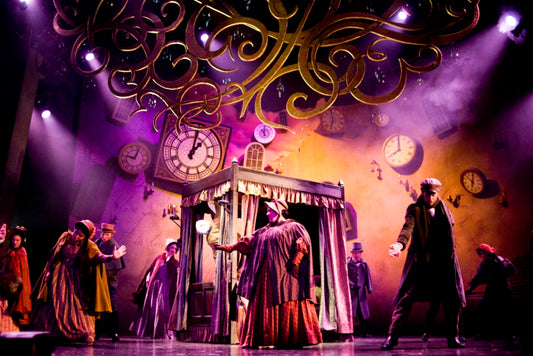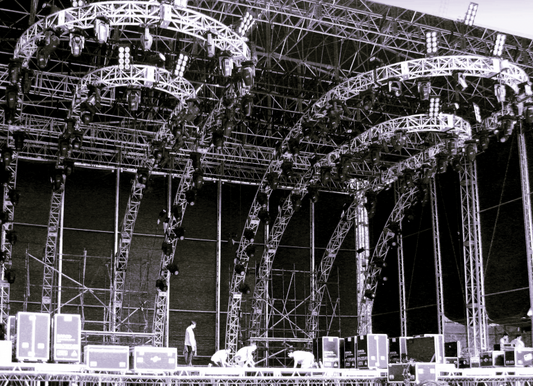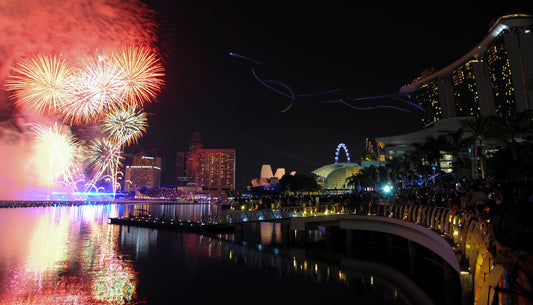When it comes to live event production, theater performances and concerts often seem similar at first glance—both require lighting, sound, a stage, and an audience. However, the planning and production of these two types of events differ significantly due to their unique demands, performance styles, and audience expectations.
Whether you're an event planner, a production manager, or a venue operator, understanding the key differences between theater and concerts is essential for creating a successful and engaging experience. In this blog post, we'll dive into the unique characteristics that set theater apart from concerts when planning and producing live events.
1. Performance Structure and Pacing
Theater:
Theater performances typically follow a scripted narrative with a clear beginning, middle, and end. Each scene, line, and movement is rehearsed, making the performance highly structured and predictable. The pacing of a theatrical production is designed to unfold over a specific duration, with acts, scene transitions, and often intermissions.
Concerts:
Concerts, on the other hand, are more fluid and dynamic. While the setlist is usually planned in advance, there is often room for improvisation, audience interaction, and deviations from the script. Performers may choose to change the energy or tone based on the audience’s reactions, making concerts more unpredictable and spontaneous.
Why it matters for production:
For theater, precise timing and control over technical elements like lighting, sound, and set changes are crucial. Every cue must be executed exactly as rehearsed to maintain the flow of the story. In contrast, concert production must accommodate improvisation and live audience engagement, requiring flexibility from both the technical crew and performers. Concerts often need the ability to make real-time adjustments to lighting, sound levels, or video feeds based on how the show is evolving.

Photo: San Francisco Theatre Opera
2. Technical Demands: Sound and Lighting
Theater:
In a theater production, the focus is on storytelling, and the technical elements serve to enhance the narrative. Lighting in theater is designed to highlight key moments, create moods, and direct the audience’s attention to specific characters or parts of the stage. Sound is typically used to amplify dialogue, control music cues, and support the atmosphere with sound effects.
Concerts:
Concerts, especially for large-scale music events, have much heavier sound demands. The primary focus is on amplifying music, ensuring clarity and balance across vocals, instruments, and backing tracks. Concert lighting is designed to complement the energy of the performance, often involving dynamic light shows, moving heads, lasers, and pyrotechnics that change rapidly with the rhythm and mood of the music.
Why it matters for production:
Theater sound needs to prioritize dialogue clarity, with careful use of microphones to avoid feedback or overpowering background noise. Lighting in theater must align perfectly with the emotional and narrative beats of the performance. For concerts, the focus is on loud, immersive sound systems and fast, reactive lighting effects to match the energy of the music. Concert venues also need to accommodate large speaker arrays and subwoofers, which aren’t typically necessary for theater.

Photo: Candlelight Tribute to Taylor Swift
3. Stage Design and Set Requirements
Theater:
Theater productions often require elaborate sets, with multiple scene changes, props, and sometimes complex rigging systems to move scenery in and out of view. Set design is a fundamental part of storytelling, and it can be as simple as minimalistic furniture or as intricate as a rotating stage with different levels. The focus is on creating an immersive world that supports the narrative.
Concerts:
Concerts generally have a more minimalist approach to set design, especially in genres like rock, pop, or electronic music, where the focus is more on the performers and music. However, many concerts—particularly arena shows—feature large video screens, visual effects, and themed backdrops that help enhance the performance. The emphasis is more on lighting and video projections than physical set pieces.
Why it matters for production:
Theater productions often require a stage crew dedicated to moving sets, handling props, and ensuring smooth scene transitions. This requires careful rehearsal and precise timing. Concerts, especially in larger venues, rely heavily on video walls and projections to create the visual experience. Concert stages are also designed with the performer’s mobility in mind, providing space for artists to move, dance, or interact with the audience.
4. Audience Engagement and Interaction
Theater:
In theater, the audience is a passive participant, observing the performance without direct interaction with the performers. The fourth wall (the invisible barrier between the performers and audience) is typically maintained, and audience members are expected to remain quiet and focused during the performance. Theater is generally more formal, and the emphasis is on immersing the audience in the story.
Concerts:
Concerts thrive on audience interaction. Concertgoers are encouraged to sing along, dance, cheer, and engage with the performers. Musicians often directly address the audience, and the energy is more electric, with a strong give-and-take between the performers and their fans. This dynamic creates an interactive and high-energy environment.
Why it matters for production:
Theater production requires strict attention to maintaining the atmosphere, focusing on audience comfort and attentiveness. For concerts, production teams need to accommodate large, active crowds, with considerations for crowd control, safety barriers, and energy levels. Concerts often involve flashing lights, pyrotechnics, and loud sound levels, which are part of the immersive experience, while in theater, these elements are used more sparingly to serve the narrative.

Photo: Jewel Theatre Tannery Santa Cruz
5. Rehearsal and Preparation
Theater:
Theater productions involve extensive rehearsals to ensure that every movement, line, and technical cue is precisely executed. Actors rehearse with stage managers, directors, and technical crews to perfect the performance long before opening night. Every detail is fine-tuned, including costume changes, prop placements, and transitions.
Concerts:
While concerts also require rehearsals, the focus is more on soundchecks, setlist flow, and the interaction between performers and technical elements like lighting and video. Musicians often rehearse specific songs and transitions between them, but there’s typically more flexibility to improvise during the live performance.
Why it matters for production:
Theater requires multiple technical rehearsals (including dress and tech rehearsals) to synchronize sound, lighting, and staging perfectly with the performers. In contrast, concerts usually need fewer technical run-throughs but extensive soundchecks to ensure audio levels are perfect. The need for flexibility in concerts often means technical staff must be ready to adjust in real time.

Photo: Santa Cruz Shakespeare Theatre
6. Venue Setup and Requirements
Theater:
Theaters are often designed to accommodate specific seating arrangements that ensure good sightlines and acoustics for the entire audience. They often have proscenium arches, fly systems, and backstage areas equipped for costume changes, set storage, and prop management.
Concerts:
Concerts can take place in a wide variety of venues, from small clubs to massive arenas or outdoor festival grounds. These spaces need to accommodate not only the performers but also large speaker systems, lighting rigs, and in some cases, standing-room crowds. Concerts may also require larger backstage areas for gear, dressing rooms, and road crew operations.
Why it matters for production:
Theater venues are designed for controlled, predictable performances, while concert venues need to handle higher energy, louder sound systems, and a more dynamic audience experience. For concerts, you need to plan for security, crowd control, and more complex technical setups.
While both theater and concerts offer captivating live experiences, their production requirements are vastly different. Theater relies on precision, storytelling, and carefully timed technical elements, while concerts focus on energy, audience interaction, and flexibility. Understanding these differences is key to ensuring successful planning and production, whether you're organizing a theatrical play or a high-energy concert.
By considering the unique demands of each type of performance, you can create an engaging, well-executed event that leaves a lasting impression on your audience.
Our Services
- CA complaint payroll services for live events
- AV techs and riggers for events
- Stagehand brokering
- Audio Video, Tech and Setup for live and hybrid events
- Staff, AV and pro support for concerts and festivals
- Lighting, audio and power distribution for events and films
Request a Quote
Ready to start planning your event? Great! You have two options to get started: click the link below to request a quote or give us a call directly. We're excited to help bring your event to life. Request a quote HERE.





